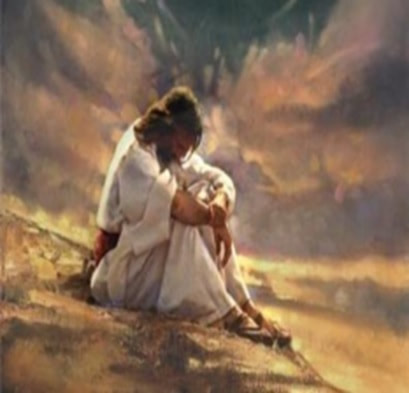|
Throughout the year, the Southern New England Conference of the United Church of Christ produces the Daily Lectionary for use by churches. These are the suggested readings for Ash Wednesday, February 17th: Joel 2:1-2, 12-17 or Isaiah 58:1-12; Psalm 51:1-17; 2 Corinthians 5:20b—6:10; and Matthew 6:1-6, 16-21. I would encourage you to read these short selections as part of your Lenten practice.
Today is the beginning of Lent. The 40 days, inclusively, between now and Holy Saturday mimic Jesus’ 40 days in the desert. If we can distance ourselves from the mythical imagery that begins in Mark and is later amplified in its re-telling by Matthew and Luke, we find an account of anguished soul-searching and discovery. Mark will refer to Jesus as “the carpenter.” (6:3) “The carpenter” leaves His hometown village of Nazareth searching for answers. There are no Christmas stories in Mark, no angels or stars to attest to His extraordinary nature. Rather, Jesus is “the carpenter,” but one who must have been confronted by spiritual yearnings and questions. It is impossible for us to imagine what and how Jesus “the carpenter” experienced the divine revelation and realization of His nature and calling so we have relied on mythical imagery from the beginning, but how much more profound than Satan and angels are the struggle and awakening of Jesus’ spiritual self-awareness. Seeking answers, Jesus leaves family, village and livelihood behind and ventures out to the Judean wilderness to join other seekers around the iconoclastic John the Baptist who is “proclaiming a baptism of repentance for the forgiveness of sins.” (Mark 1:4) Jesus submits to this very baptism. This is a decisive moment of self-awareness that startles Jesus to His core. Pious imagery of Jesus’ baptism depicts a dove gently descending upon a humbly receptive Jesus. Mark, however, tells us that Jesus alone saw the heavens “torn apart.” (1:10) The original Greek verb is σκίζω (schizo). Mark will use the same verb again to describe the Temple curtain torn in two from top to bottom at the moment of Jesus’ death. Σκίζω is not the clouds parting, the sun shining and birds singing. Σκίζω is a powerful rending, tearing apart of the skies. This symbolizes a fiercely powerful recognition or revelation or both that burst into the self-awareness of Jesus “the carpenter.” If there is an intentional correspondence between these two passages at the beginning and end of Jesus’ ministry, then the proclamation of the centurion at the cross, “‘Truly this man was God’s Son,’” (15:39) corresponds to Jesus’ self-discovery during His 40 days in the wilderness. The realization/revelation is so radically transformative that the prior Jesus “the carpenter” and the Jesus who emerges to begin His public ministry are figuratively “torn apart.” Today we enter our 40 days in the wilderness. This is our sacred opportunity to discover or re-examine our spiritual nature and calling. This is a time to leave preconceived expectations behind and let the Spirit drive. We are preparing to approach the scandal of the cross. We should leave the ordinary behind. We should allow ourselves to be startled by the realization/ revelation of what it means to love and to follow a crucified Saviour. May this season be transformative as it was for Jesus. May this be a time of spiritual discovery. If you’d like, here is the link to the Massachusetts Conference’s daily reading schedule: www.macucc.org/lectionary.
0 Comments
Leave a Reply. |
NewsFaith, love and chitchat. Categories
All
Archives
June 2024
Follow
|
|
SERVICE TIMES
Sunday 9:30-10:30am Children Sunday School 9:30-10:30am Nursery care available during worship DONATE Make a single or recurring contribution by clicking here |
FOLLOW
|

 RSS Feed
RSS Feed
